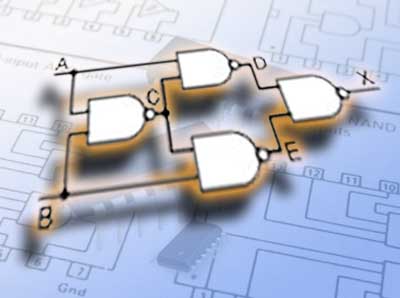LEE BAO YI's Reflection
This page will show my reflections regarding the courses in Semester 1. The reports done will therefore be included under the block title "Semester 1, 2019/2020".
Technology and Information System (TIS) is a core subject for students in pursuing studies in the field of Computer Science. This course has introduced students to information system (IS) and information technology (IT), as well as its purposes in daily life. Practical works in the labs comprise a major part of the study and therefore students will also be equipped with basic skills in handling PC installation and productivity tools. At the end of the course, students should be able to explain the parts of an information system including software, hardware, data, and the Internet and meanwhile to distinguish between the kinds of system software programs. Aspects of IS and IT including network, communications, graphics and multimedia will be included during the learning session.
----------------------------------------------------------------------------------------------------------------------------------------------------------------------------
As reflections, this course of Technology and Information System exposed me to get in contact with the technology system knowledge. This gives us a pre-understanding of how technology system works to suit human needs in daily life. As a student in the field of Bioinformatics, my goal is to implement the current technology especially in the Bioinformatics research. Moreover,I learnt that teamwork spirits and communication between group members play vital roles in the process of accomplishing group project, "Design Thinking". This "Design Thinking" project promotes the need of critical thinking. Our group has designed and produced a prototype that involving solving the problem encountered at the ATM machines.
Here's the video link for the prototype: https://www.youtube.com/watch?v=pN_DU6MaTW4
------------------------------------------------------------------------------------------------------------------------------------------------------------------
Furthermore, on 4 November 2019, there was a PC Assembly session conducted by our lecturer, Dr.Zuraini Binti Ali Shah, assisted by lab assistants, in Makmal Inovasi Perisian, Level 3, N28. During the session, my group members and I learn to build assemble a computer step by step. and we were able to take a close look on the components of a PC such as RAM. After that, there was a Quiz session to answer the questions in order to strengthen the knowledge gained.
The subject of Thought of Sciences and Technology (Pemikiran Sains dan Teknologi) includes the development of science and technology thinking in human civilization from classical to modern times. The topic that impresses me the most is 'The Cross-border of Science and Technology Thinking (Pemikiran Sains dan Teknologi Merentas Sempadan) as it gives me a brand-new understanding on how the power of the combination between science and technology has influenced the development of the human civilization. From this subject, I also learnt how to cooperate with group members in order to complete the task.
This is the prototype developed in the group project of 'Arc Project'. Being glad that we won the 2nd place on the day of 'Pertandingan Inovasi Kursus Pemikiran Sains dan Teknologi' organized by Faculty of Social Sciences and Humanities, UTM. And a great thanks to my lecturer, Dr. Nur Najwa Hanani Binti Abd Rahman for her guidance and my group members for their creativity and hard work.
Here's the video link: https://drive.google.com/file/d/1SPXXdMGvuR_t4CJPsAZgjWTD4BuqLYLB/view
As a foundation of all microprocessor-based systems, the course of Digital Logic introduces the students to digital electronics and provides a wide overview on many important concepts. During the learning process, students will get up-to-date coverage of digital fundamentals from basic concepts to programmable logic devices. Furthermore, there are also hands-on experience with actual devices, circuits and simulator software studied in the lecture room.

As reflections, through this subject of Digital Logic, I have learnt a lot of basic knowledge regarding to computers, including its components making up a circuit such as different types of gates, flip-flops, latches. Besides this, I am exposed to construct circuits using software called 'Deeds'. Meanwhile, I am given chances having practical lab works. The lab works require me on using digital logic solutions involving the design and verification using real devices. These experiences enhance my knowledge not only applicable in examination halls but also in real-life challenges.
